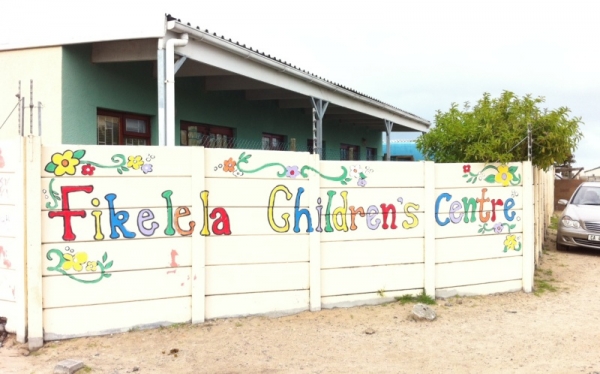Children without homes: referrals up for Cape Town centre

Just this week alone six children have been referred to the Fikelela Children’s Centre in Mandela Park, Khayelitsha. The institution’s head social worker, Kate Brydon, says the number of abandoned children being referred to Fikelela has risen.
Brydon says from having just 20 children in their care when she started there four years ago, the number has now risen to a maximum 40 children. “Back then we didn’t have many admissions. We would have, like, one admission every couple of months, where as now I have had six children referred to us already, and most weeks we have five referrals. We can’t always take all of them because of space. We have three spaces left right now but by this afternoon, two of those spaces will be filled,” she says.
Fikelela was started in 2001 by the Anglican Diocese of Cape Town, after the Fikelela AIDS Project saw how many children were being abandoned or left behind by sick parents who had died. They started the centre for children who were infected or affected by HIV and AIDS. The centre takes children up to eight years old, put them on antiretroviral treatment if necessary, and places them in homes.
“We were a long term care [centre], [but] now we are a temporary safe care [centre] and we get all the emergency cases — children whose situations are still being investigated. They can be here between three to six months. Then we look at routes in terms of foster care and adoption. There is a huge need for children’s homes. It’s difficult for us to turn away referrals but we have to because we have no space, or we might have space and then they will need a cot or they will need a bed, and we don’t have space to put any extra beds or extra cots,” says Brydon.
The centre takes children both with and without HIV. It also takes children with minor disabilities. It has two houses, one for the boys and one for the girls, though this division is mainly for sleeping purposes. Some of the children come to the centre after being abused; the centre helps give them safety and comfort. Every child has his or her own space and bed to sleep in at night. During the day the children are all together.
Fikelela gets some of their funding from government and the rest is through donations and fundraising. The centre goes through about 200 nappies a week and they have 12 to 15 babies under the age of two.
Brydon says getting staff fully qualified is a challenge because of the difficulty of accessing training. She explains that it is not possible to get a full qualification in child and youth care in Cape Town. Training is only available in Johannesburg and Durban. “We have at the moment five qualified staff members, and the rest have been with us for the last ten years so they are qualified by experience. But our push is to have all our staff trained in the next five years,” she said. Children in the centre aged three to five are placed in pre-schools in or near Khayelitsha. Those aged six to eight go to local schools. Fikelela gets children from all around Cape Town compared to a few years back where most of the children brought in were from Dunoon.

This article is licensed under a Creative Commons Attribution-NoDerivatives 4.0 International License.


